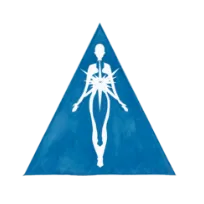SUMMARY: Being able to read and comprehend medical studies is a very important skill that all people should learn. In a time where advanced medical knowledge is easily accessible, being able to read studies directly, rather than just popular press summaries, will enable make you make more informed decisions and achieve greater medical autonomy and an active participant in health choices. That will lead to cost savings, time savings, and greater overall health.

Proactively Manage Your Health
Reading technical data and medical studies isn’t at the top of most people’s ‘to-do list, ’ however without doing so we are at the mercy of experts who quite often have many agendas which be compete with what is best for us. We need to become our own health advocate, an informed, sensible, and ardent one.
Your body, health, and wellness goals are primarily your responsibility and you have to live with the direct issues caused by the consequences of the choices made. No one is in a better position to direct your health trajectory. Rather than relying on practitioners, the medically autonomous individuals utilize practitioners. There’s a big difference. Without that difference a truly well body is a pipe dream. “Healthcare” in the United States is really disease management. “Minor” symptoms are ignored until a debilitating pathology has emerged. Practitioners are often too swamped, or under pressure from third-party payors, to get involved any earlier. But YOU can get involved. You can respond to the not-yet-debilitating symptoms of not feeling refreshed in the morning, the stiff ankle the next day after a run, or feeling low energy following most meals. By becoming medically autonomous you can garner resources and implement solutions on your own. You can reach out to the right type of practitioner and say, “Hey, I don’t feel refreshed in the mornings anymore, you able to help with that?” This is the proactive way to manage your health.
So, let’s figure out what you can do to increase your knowledge base and take control of your health:
- First, you will need a medical dictionary. There are sources online. For example, Wikipedia is a great source for medical information. Forget what the college professors told you when it comes to Wikipedia as a source. As a physician I’ve found Wikipedia to be an excellent source. Researchers like to go there and update the pages when new information is gained. Many of the medical articles have a great bibliography at the bottom for you to link to actual papers.
- The second resource is PubMed. It is maintained by the United States National Library of Medicine and is the world’s top search engine for life sciences and biomedical information. When you get a paper start with the Abstract. If it interests you move on to the Introduction. Then scan the Results section and skip to the Conclusion and Discussion. Voila! With not much investment in time you’ve just gained an enormous amount of useful medical information about something that interests you! PRO-TIP: Look up every term you don’t understand as you read before proceeding. This will be very tedious at first but it will be less necessary as you gain knowledge. This is actually my favorite part because I learn so much more as a result. PRO-TIP: If the paper you want to read isn’t “free,” do a web-search with the title and add “pdf” to the end. You might get lucky as often times researchers will put pre-publication copies into open circulation.
- There are different types of papers: Reviews will be more like a chapter from a textbook with an emphasis on key studies. Case Studies look at individual cases. The strength of the case study is it alerts you to specifics on the topic. The case study weakness would be it’s based on a single (or small group of) participant(s). A Meta Analysis will look at every study they can get their hands on, crunch them together, and compare the data. Studies will have a control group versus the study group and give the information found for the study. Review Studies are the most user-friendly. I go much more in depth in my upcoming book.
- Finally, get started! Here’s an important sample topic to get the ball rolling: anti-nutrients on Wikipedia and on PubMed.
Personal Tips
This is a skill that has to be developed. If there’s a high-stake decision and you need to be informed, this is a skill you want to have down already. You don’t want to wait.
Wikipedia is a great place to START. It’s comprehensive and kept up-to-date (for the most part). You can wormhole into a ton of information and studies from Wikipedia.
Furthermore, when you master this skill, you can think of questions you have and get right to work. This gives you an advantage when it comes to making decisions. Ultimately, you have the information at your fingertips. Besides, who wants to wait for answers when they are accessible?
So, Taking our example of Antinutrients:
To deepen your understanding of this topic, conduct a web or similar search for the following terms and/or topics:
Peruse the following:
The starting point is Wikipedia: https://en.wikipedia.org/wiki/Antinutrient
So, we find out that an antinutrient interferes with the absorption of nutrients, or the things that help our body to work the way we need them to. The further we read, we find out that the way food is prepared can change an antinutrient to a nutrient that works for the body. (This is where our brains can ask critical questions. Soaking a legume can make it nutritious while skipping that step creates antibodies, do I want to skip that step?)
Perusing the studies used for the antinutrient entry in Wikipedia, I pulled one that seemed within reach: Dolan LC, Matulka RA, Burdock GA (September 2010). “Naturally occurring food toxins”. Toxins. 2 (9): 2289–332. doi:10.3390/toxins2092289. PMC 3153292. PMID 22069686.
This link will take you to a study called “Naturally Occurring Food Toxins” https://www.ncbi.nlm.nih.gov/pmc/articles/PMC3153292/
Now, you have the tools to start diving in. Moreover, don’t be intimidated by this exercise, use it as a stepping stone towards mastering the tool of interpreting studies. This way, you can be an active participant in your care.
